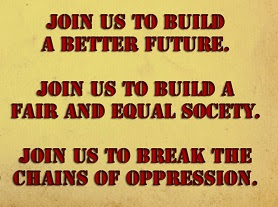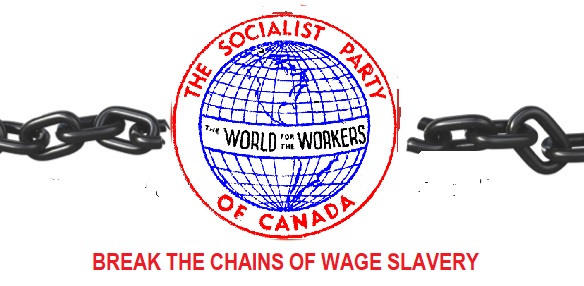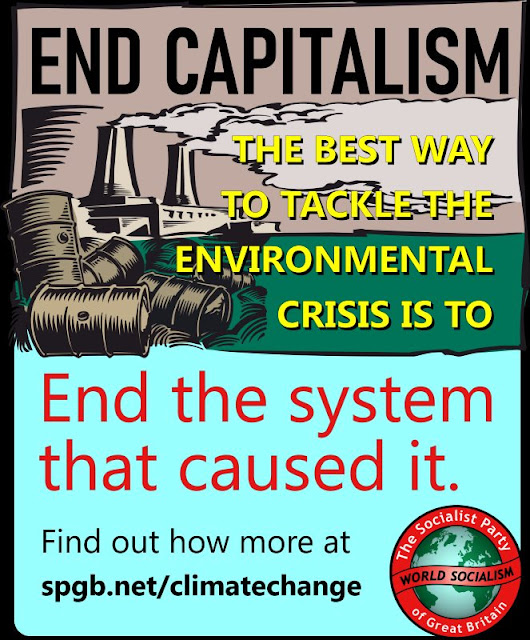One concept that is completely absurd is that of the “cheated employer,” who is “taken advantage of and swindled” by his employees. It comes in many versions but they all contain the same basic formula: A boss is just an honest person, trying to get by in this crazy dog-eat-dog business world, but they are being cheated by the laziness and sometimes downright theft of their employees. Those mooching workers are protected by the union, so the poor, the victimised suffering boss is forced to endure the abuse and extortion of the lazy union workers.
Marxists hold that all profit is produced by labour. This is called the theory of surplus-value. So if all profit in any business is produced by labour, what right has any bourgeoisie to claim that they are “being cheated,” let alone lay any claim to said profit in the first place?
There is another widely popular myth that the capitalists are entitled to their compensation, as well as the value of other peoples’ labour, simply because they take “risks” or because they come up with original ideas for the production of goods. Who takes more risks—the worker or the capitalist? The capitalist is someone who has capital, at least enough to invest in some industry or business. After all, this is what we are speaking of when we speak about capitalists taking risks—they invest in some business or industry with the hopes of getting a high return on their investment. Recent events have shown us how wonderful this system works, but let’s ignore that for a moment. What happens when the capitalist takes a risk and loses? Most likely, he/she will not lose everything unless they have been very foolish with their money and careless with their investments. Even if that should happen, what is the absolute worst that could occur? They will have to work for a living, like everyone else. What a calamity!
Now, what about the worker’s risk? The worker is already forced into a life-or-death situation, as working people have no means of subsistence other than their ability to work. They are forced by necessity to work for the capitalist by his or her conditions in order to be paid money to live. Thus for many men, women and even children, the worker may often be risking physical injury, disease or death. Millions of workers worldwide are forced to risk their health and life by working long hours under extremely dangerous conditions such as exposure to toxic fumes, heavy machinery, unsafe structures and so on.
As if that wasn’t enough, the worker is also taking a risk when they trust that the company they work for isn’t going to go belly-up within a short time, putting them back out on the street. This is especially devastating these days when unemployment is very high. Workers may have to relocate and disrupt their lives just to find a decent job. When they are laid off soon after relocating, all their plans are shattered. The capitalist by stark contrast risks at most being reduced to the state of the worker. Clearly, the worker risks far more, and yet their compensation is far less than that of the capitalist, thus dispelling the idea that risk entitles one to wealth.
Capital, in a capitalist system, is generally accumulated via surplus value; that is the exploitation of workers’ labour. Moreover, what about those capitalists who make wise investments, searching for investments that will guarantee profitable returns? Should they be penalized or taxed in some way for not making risky investments? But how are investments risky when the richest capitalists can trust the governments they control to bail them out if they should fail? Those banks and companies which invested their money weren’t risking anything at all since the government promptly compensated them for their failure at the expense of the public. Explaining that a capitalist deserves to profit off of others’ labour because he allegedly takes a risk simply does not stand up to scrutiny.
You’ll hear employers and politicians, even union leaders argue for fair days pay for a fair day's work. The labour market works this way; employers have capital and are in need of workers to manufacture their products and provide service. Those who seek to be hired, seek an opportunity to sell their only “commodity” their labour-power. This seems like it could be a fair trade, yet workers continue to demand fairer wages, and the capitalists continue to make higher and higher profits while they refuse these demands. How can this be?
The capitalist invests a certain amount of money to hire the worker $56 for 8 hours of work, a wage of $7 dollars an hour. However, the value of the product of this labour will net his boss $200. So is this extra $144 the work of magic? Of course not. The Marxist Labor Theory of Value explains that value is created by labour-power. The amount of spent labour-power is measured in time, therefore the value of a commodity is determined by the time necessary to produce it. This means that the value of the worker’s labour-power can be measured in the amount of goods and, thus, money he needs to keep himself alive and going, to maintain and restore his ability to work after a long day on the job. Therefore the capitalist is compelled to pay him the bare minimum wage needed for survival (sometimes more, sometimes less), $56 in this example, yet the ratio of the amount needed for the basic maintenance of the worker to the hours needed to earn this much is unlimited. Essentially, the capitalist is able to extract more hours from workers while only compensating them to a minimum and reaping the larger part of the value created by the worker.
In our example, the worker would only need to work for approximately 2 hours and 14 minutes to produce a value of $56, but the capitalist hired the worker for a certain period of time, 8 hours here, and during this time all value produced belongs to the capitalist. The workers are paid not for their labour, but for using their labour power to perform work for the capitalist, and they do so with his means of production. The moment they start working, the product of their labour belongs to their employer, no matter if less (which would most likely get the worker fired) value or more value is produced in that period of time than is embodied in the money the workers have received.
This additional, unpaid labour, is called surplus labour and the value it produces without the worker being compensated for it is called surplus value. The extraction of surplus value from the working class is the basis of the capitalist system. Every capitalist’s goal is to extract as much surplus value as possible as it is the basis of their profit. The only way to press more and more surplus labour from a worker is to either reduce the time he works, to gain capital through investment and/or to increase the time the worker works “for free,” without receiving any payment. To put it bluntly: the higher the wages are for workers, the lesser the profit for the capitalists, and vice versa.
So are fair wages possible under capitalism? Can a worker receive the full equivalent of the work he performs in a capitalist society? The answer is no; it is entirely impossible as it would leave no surplus value and thus no profits for the capitalist class, and thus render their existence impossible. It would become obvious that they are superfluous parasites, feeding off of the blood and sweat of the working people and living on the unpaid labour of others. The wealth of a selected minority is based on the exploitation of the majority’s hard work. To expect fair wages under this system is like expecting the abolition of slavery in a slaveholder society, as Marx points out. The moment the slaves are freed, we can no longer speak of a slaveholder society; the moment the working class receives the full value it produced, our society has ceased to be capitalist.
The labour theory of value is an essential concept in a Marxist understanding of the world. Without workers and their labour-power, there can be no production. Without people working to build and manufacture goods, extract natural resources, transport them and facilitate their use, value is impossible to realize. The “invisible hand of the market” can’t build things, cannot mine coal or run machinery or drive trucks. Yet, we are supposed to see it as the chief decider of value, as if labour could be removed from the situation effectively. Labour is, and always will be, the key to unlocking the wealth of nature.
So always remember this, if you produce goods or services worth thirty dollars, and the boss pays you ten; it is you who is getting cheated, and don’t ever forget it.











